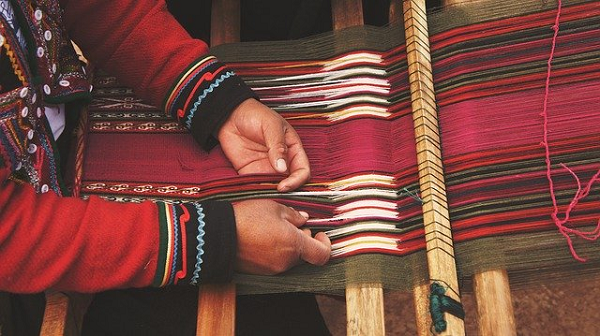
Microfinance is the provision of small loans or other forms of financing to small or even tiny business enterprises that may be too small and/or risky for mainstream banks or other financial institutions to serve with conventional financing products.
“Access to a range of microfinance services – savings, loans, microinsurance, and money transfers – enables poor families to invest in enterprise and in better nutrition, improved living conditions, and the health and education of their children.” (From the International Finance Corporation web site)
Poor households, single women, the unemployed, small crafts entrepreneurs, and other small-scale tradespeople and business ventures are typically underserved by banks and other financial institutions that serve larger companies. Even though very small businesses and initially fragile startups can often grow into successful enterprises that support individual households and communities, it typically is not profitable for a bank, for example, to lend money to such businesses. Therefore, provision of microfinance typically is organized and supported by development banks, government agencies, nongovernmental organizations, and credit cooperatives. Microfinance is especially important as an economic development tool in underdeveloped countries and poor communities. To maximize its potential for success, the provision of loans or other financing through microfinance typically is supported by the likes of training in business management skills, assistance in preparing business plans, initial assistance grants or interest-rate subsidies, additional banking services, and help in accessing needed markets.
Mikrofinancování je poskytování malých půjček nebo jiných forem financování malým nebo dokonce miniaturním firmám, které mohou být příliš malé a/nebo riskantní pro běžné banky či jiné finanční instituce poskytující tradiční finanční produkty.
„Přístup k řadě služeb v oblasti mikrofinancování – úspory, půjčky, mikropojištění a peněžní převody – umožňuje chudým rodinám investovat do podnikání a do lepší výživy, zlepšených životních podmínek a do zdraví a vzdělání svých dětí.“ (Z webu International Finance Corporation)
Chudé domácnosti, svobodné ženy, nezaměstnaní, malí řemeslníci a jiní malí obchodníci a podnikatelé jsou tradičně mimo hlavní zájem bank a jiných finančních institucí, které obsluhují větší firmy. Přesto, že z velmi malých podniků a křehkých začátků může často vyrůst úspěšná firma, která podporuje jednotlivé domácnosti a komunity, pro banku obvykle není rentabilní, aby takovému podniku například půjčila peníze. Proto je poskytování mikrofinancí tradičně organizováno a podporováno rozvojovými bankami, vládními agenturami, nevládními organizacemi a spořitelními družstvy. Mikrofinancování je důležité zejména jako nástroj ekonomického rozvoje v nejméně rozvinutých zemích a chudých komunitách. Aby byl potenciál na úspěch maximalizován, poskytování půjček nebo jiného financování prostřednictvím mikrofinancí je obvykle spojováno se záležitostmi jako vzdělávání v oblasti řízení firmy, pomoc s přípravou business plánu, počáteční grant nebo dotace na úroky, další bankovní služby nebo pomoc s přístupem na potřebné trhy.
English Editorial Services’ mission is to assist international businesses and organizations of all sizes to communicate clearly, correctly, and persuasively with their business partners and target audiences.
Simply subscribe to receive our Business Term of the Day at no charge to your inbox each business day, with explanation in English and Czech.



English Editorial Services’ mission is to assist international businesses and organizations of all sizes to communicate clearly, correctly, and persuasively with their business partners and target audiences.
Simply subscribe to receive our Business Term of the Day at no charge to your inbox each business day, with explanation in English and Czech.

